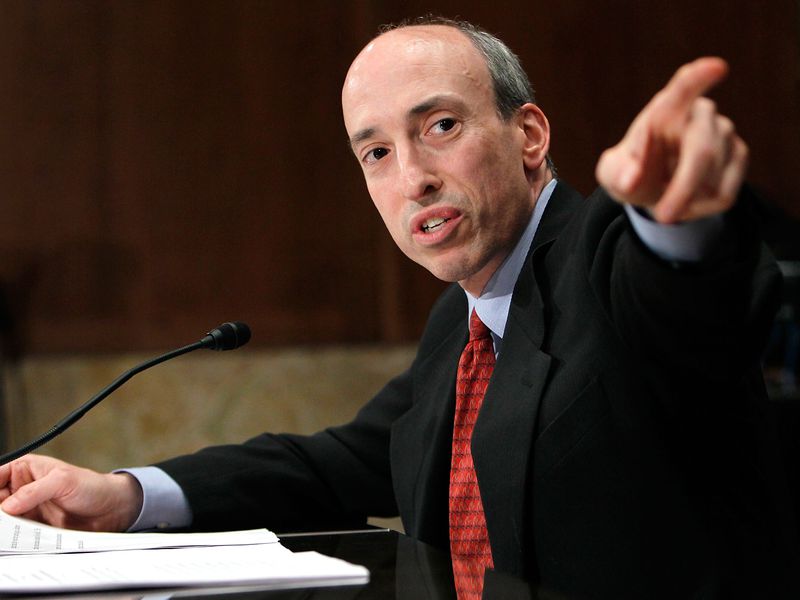U.S. Sen. Lummis Says ‘Delicate’ Talks Underway Over U.S. Crypto Legislation
/arc-photo-coindesk/arc2-prod/public/LXF2COBSKBCNHNRE3WTK2BZ7GE.png)
Long-awaited legislation to set rules of the road for U.S. stablecoin issuers is the subject of “pretty delicate” negotiations, Sen. Cynthia Lummis (R-Wyo.) told CoinDesk TV on Thursday.
She added that talks are ongoing every day not only between Democrats and Republicans, but also between the U.S. Senate and the House of Representatives.
Lummis, the Senate’s most reliable advocate for crypto policy and the co-author of one of the most wide-reaching legislative efforts to regulate digital assets, suggested that the stablecoin piece may have the best odds of success this year. And she said it’s received “good technical assistance feedback” from the Federal Reserve.
“I’m optimistic that we will see stablecoin legislation this year and possibly even in the first half of this calendar year,” Lummis said. “The deeper you get into the calendar year where there’s elections, the tougher it is to get members of Congress to concentrate on difficult legislative issues, because their eyes are on their re-election and keeping their party in the majority.”
This Congress has progressed further on crypto legislation than in the past, and Republican-led House committees have advanced bills on market structure and stablecoins to the House floor. The greater bottleneck has so far been the Senate Banking Committee, where Democratic leadership hasn’t demonstrated much interest publicly in passing a crypto bill this year.
Stablecoins such as Tether’s USDT and Circle Internet Financial’s USDC, which are tokens tied to the value of the U.S. dollar, are a vital part of the crypto markets, used as steady means of transacting in other more volatile assets. (Collectively, stablecoins have a market cap of about $136 billion.) Some legislative efforts have approached the finish line in the past few years, with Democratic and Republican lawmakers finding common ground on regulating the tokens. But one of the key sticking points has been the role of the Feds or the states in overseeing issuers.
Lummis, a member of the banking committee, said the current stablecoin debate is “a pretty dynamic discussion, and we’re not there yet.” But she added “there really is light at the end of the tunnel.”
In recent months, House Republicans have been aiming toward floor votes on multiple crypto bills. They got close to votes late last year before the Republicans’ battles over the speaker of the House job and the parties’ budgetary debates got in the way, but Rep. Patrick McHenry (R-N.C.), the chairman of the House Financial Services Committee, has indicated it remains a priority for this session. This is McHenry’s last year to reach his goal before he leaves Congress.
Lummis said that recent developments in the crypto industry are helping to make a case for legislation. The U.S. Securities and Exchange Commission’s approval of spot bitcoin exchange traded funds (ETFs) was a major step toward making the public more comfortable with investing.
“When you see an Invesco or a Fidelity or a BlackRock getting into the bitcoin ETF space, it really gives consumers confidence that this is a more mature asset class now,” she said. “It’s ready for prime time, so to speak, and the adoption is going well.”









